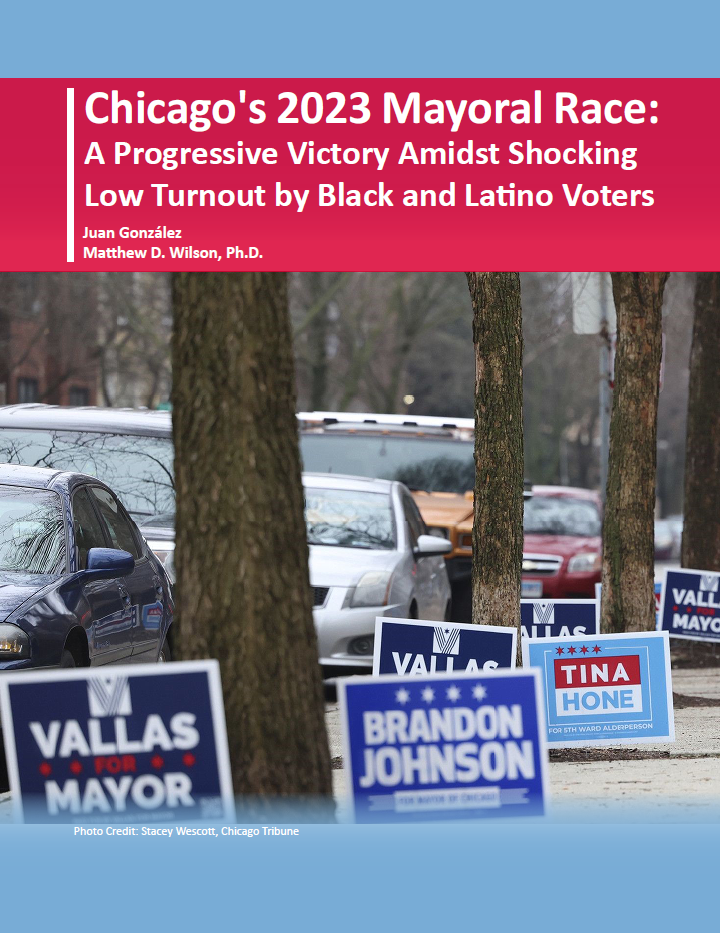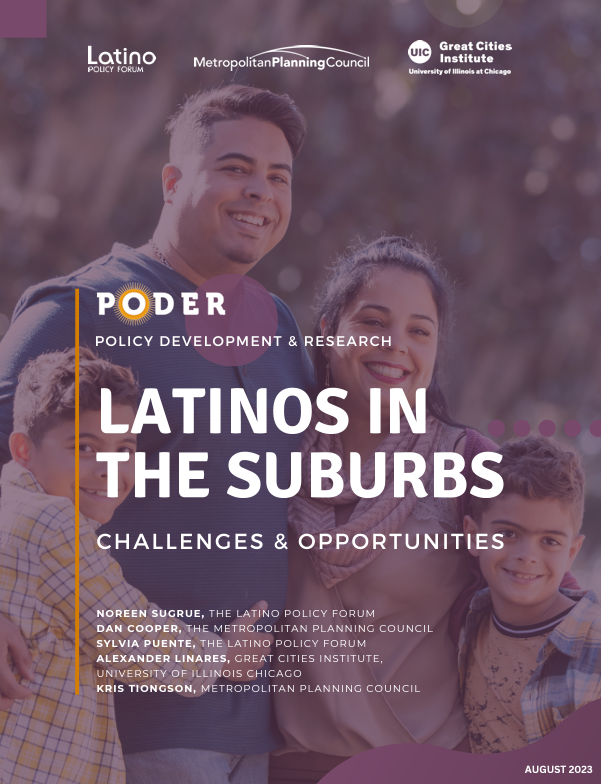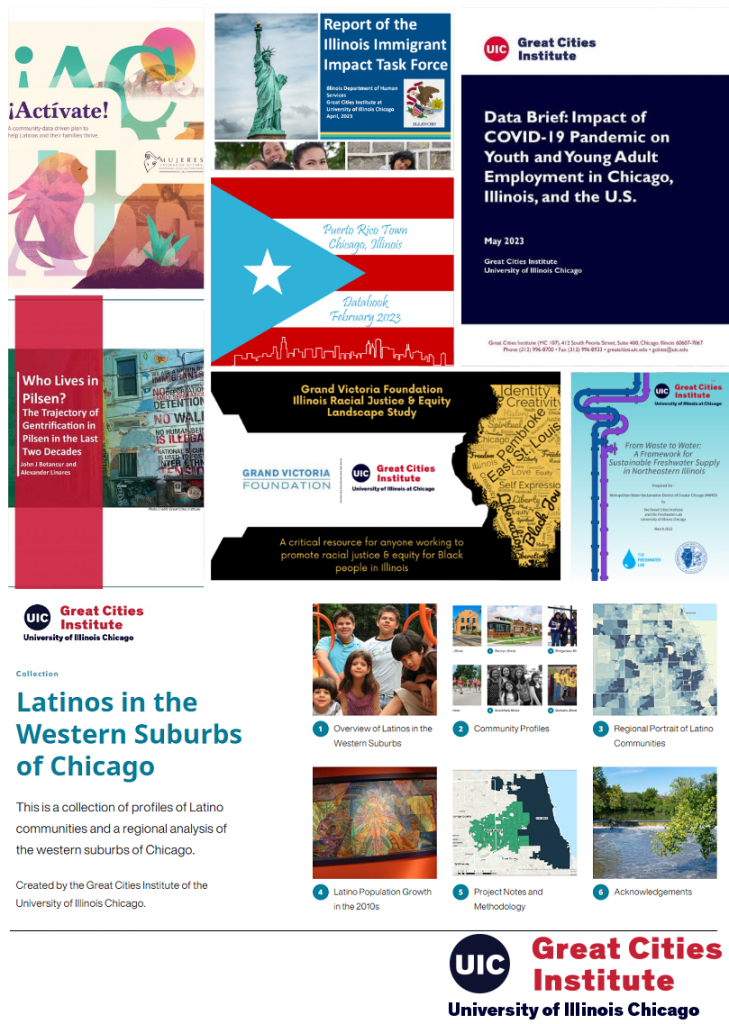
Executive Summary:
Brandon Johnson’s election this past April as Chicago’s new mayor has been hailed across the country as an electrifying victory by progressive Democrats. But a detailed analysis of vote tallies and turnout conducted by Juan González and Matthew Wilson of the Great Cities Institute finds “a startling gap in voter turnout continues to persist along racial and ethnic lines” in Chicago.
The review of all 1,291 voting precincts throughout the city found that a mere 29 percent of registered Black voters and just 20.5 percent of registered Latinos cast a ballot in the April run-off, a far lower figure than the 61.1 percent of Chicago’s registered white voters who turned out.
It further estimates that 54.4% of Latinos who did participate in the runoff cast their ballot for Johnson’s opponent Paul Vallas, as did more than 70% of Asian voters, but that Johnson achieved his slim victory by capturing 88 percent support from Black voters and a substantial minority – 34 percent – of white voters. For more details on the racial and ethnic voting patterns in this election, how those trends compare to the historic 1983 victory of Harold Washington, and possible lessons to be learned from the data, see the full report below.
Authors:
Juan González,
Co-Host of Democracy Now; and Senior Research Fellow, UIC Great Cities Institute.
Matthew D. Wilson, Ph.D.,
Research Assistant Professor of Urban Planning and Policy; and Associate Director for Economic and Workforce Development, UIC Great Cities Institute.
Read the Full Report Here.












